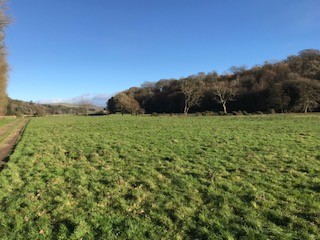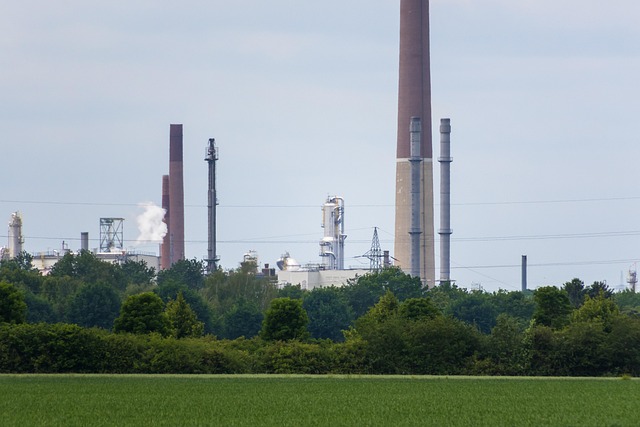


Brent Forbes Chartered Surveyors are particularly well-placed to advise on matters of this nature. With a comprehensive knowledge of North West land and development trends, they consult to many of the region’s largest property owners and developers. Many sites are complex with multiple aspects concerning planning such as access, change of use, development potential and so on - all factors that can affect value.
That’s why a land appraisal from Brent Forbes Chartered Surveyors will show the true potential for land development.
// Land Valuations
If you’re considering investment in land for development, you’ll need to engage a suitably qualified land valuation surveyor to ensure you get an independent land valuation. Similar to a property valuation, when valuing land, RICS Registered Chartered Surveyors, like Brent Forbes Chartered Surveyors, take into account many different aspects of land development which affect the land value.
As members of the RICS Brent Forbes Chartered Surveyors will prepare an independent land valuation to the RICS ‘Red Book’ standards. This includes taking into account comparable evidence, location, market conditions, tenure, topography, developable area, services, planning and land classification. A reasoned land valuation by an RICS Registered Valuer and Chartered Surveyor such as Brent Forbes Chartered Surveyors will help to reduce the risks when embarking on a land purchase for development.





There are many factors that affect land value. At Brent Forbes, we consider these to be some of the most important:
But the skill of any commercial land valuation is the way that the combination of these and many others factors are assessed as a final value – it’s not as easy as it first appears!
Location isn’t the only factor affecting land appraisal, but it is an important one. What's nearby in terms of amenities, the availability of public services, and links to transportation are all taken into account, as is the overall appeal of the location; all are considered when arriving at a land valuation.
Your land value will be affected if there are any properties on it, but not necessarily positively! In the case of development land, properties might need to be demolished and so the cost of this would need to be taken into account when making a land appraisal. On the other hand, if there are properties that could be improved as part of a residential development, the costs for this need to be estimated and taken into consideration too. All this is part of the job that your land valuation surveyor does.
RICS Surveyors like Brent Forbes monitor and check the regional property market regularly to ensure we’re always abreast of residential development land values per acre. This means our land valuations are more realistic and based on real-world experience of similar transactions in the past, as well as today’s market conditions.
For development land, the size and shape of any plot is important. It’s all about access, neighbouring properties or land and topography. Agricultural land values can also differ according to the size and type of the land as well as if there are buildings on it – all of which need to be measured and assessed by your land valuation surveyor with these figures being fed into the final value calculation.
This depends on what a purchaser wants to do with the land in question. Our land valuations check what planning restrictions are in place on a piece of land and this feeds into the commercial land development calculation. Sometimes it’s possible to gain planning permission or get change of use and your land valuation surveyor can advise you on this.
// Land Valuations



There are several environmental factors that will affect land value:
Any one of these factors that your land valuation surveyor may identify can affect the valuation considerably.
Most if not all these issues can be mitigated, but there are often considerable costs involved that need to be taken into account.



// Land valuations
As discussed above, land valuations are complex. There are many factors involved, and each type – land for property development, land for commercial development and especially agricultural land values, all have their own criteria, making it a highly skilled business. Each type of land also has its own market forces and price points too.
A good understanding of the market, perseverance and a robust system are all required to achieve a valuation; the two land valuation methods used by Brent Forbes are recommended by the RICS and are detailed below.
The land value comparison method takes into consideration all the criteria noted above and then compares it with other nearby pieces of land with the same or similar criteria. For instance, a similar piece of land with planning permission nearby would be a useful comparison.
On the other hand, the residual method of valuation is mostly used for land with development potential and can be used to answer the question: how much is land? This uses a simple formula which subtracts the cost of the development (plus profit) from the gross cost of the land. The amount remaining is the land valuation - the ‘residual’ land value. Some of the drawbacks of this method are: obtaining an accurate development cost, time delays between actual valuation and bringing a development to the market and delays in obtaining planning consent.



// Commercial Property Value
At Brent Forbes Chartered Surveyors we have considerable experience of many types of land valuations and as chartered valuers and surveyors, we work to the strict professional guidelines laid down by the RICS
We have considerable experience all over the North West in commercial land development. With our extensive market experience going back many years, we can advise you on property development feasibility for all types of situations.
Residential property development starts with a land valuation to check the financial viability and feasibility of a project. Again, we have extensive experience of ‘what if’ situations like this and can be relied upon to offer the best advice based on our experience of residential development land values all over the region.
We can advise on agricultural land valuation for farms, smallholdings and equestrian interests throughout the North West. The valuation of farm land is a specialised business requiring deep knowledge of the local market and market trends – both of which we offer.
Here are some explanations on land valuation in our FAQ section:
In the page above we hope we’ve gone some way to explaining why no two pieces of land are ever the same price! Here are just a few of the factors which may affect the value:
- Location
- Size
- Shape
- Planning restrictions
- Environmental issues
- Likely use (or potential use.)
Yes – and sometimes you might have to!
After a land appraisal by a qualified valuer, they’ll determine the right price for the market. But if there are no takers, and you want to sell quickly, you could end up with less than the valuation. Bear in mind that sometimes there may be tax implications too, but we can refer you to a specialist.
The UK doesn’t have a Land valuation tax as such, but indirect taxes like CGT and IHD sometimes need to be paid on land value and/or property value when it’s sold or transferred – especially as part of a deceased person’s estate. (See more about probate here – internal link to Probate Valuation page.) Although we are not Tax Advisors, we are aware of all the taxes that may need to be paid on property transactions and can flag up issues in advance.

// Testimonials
